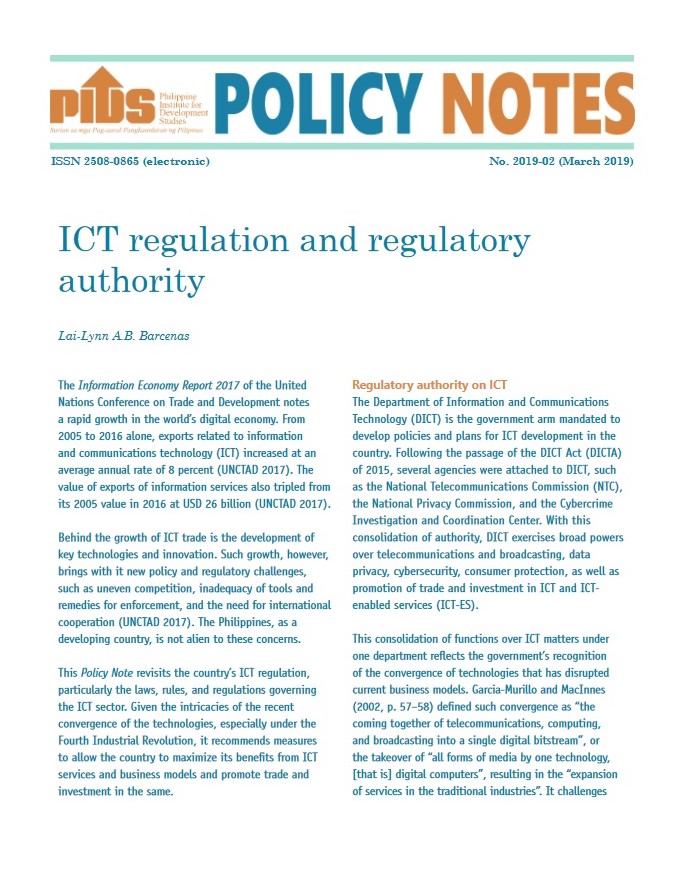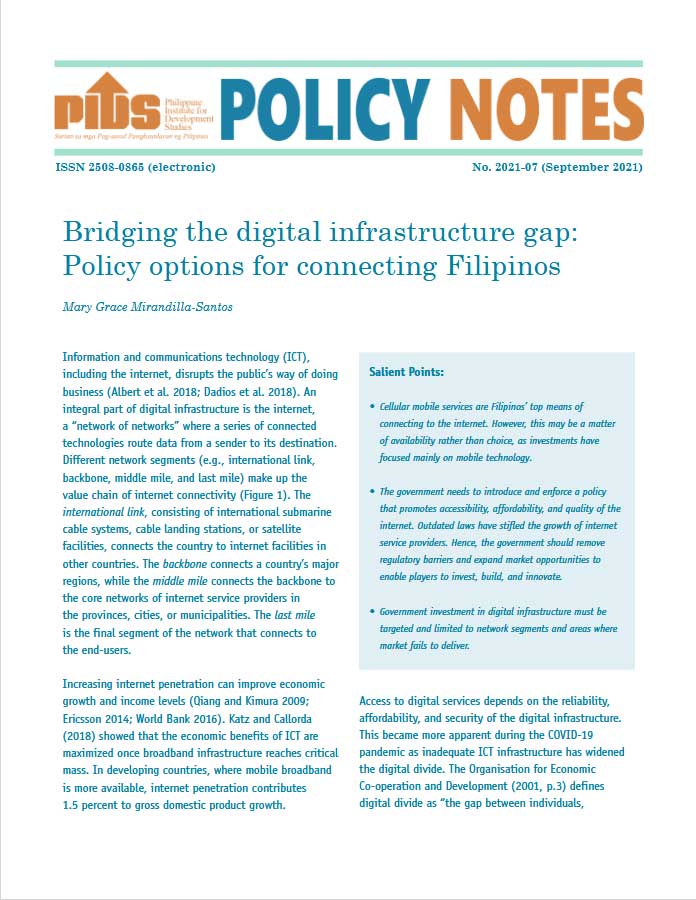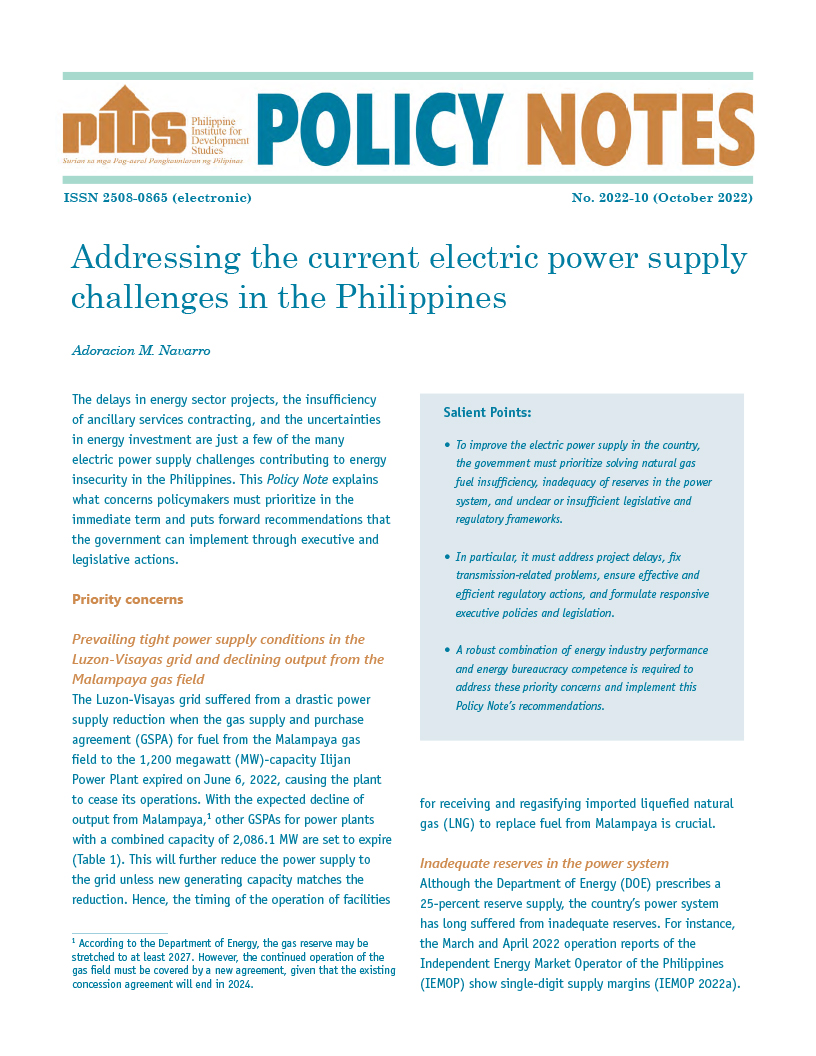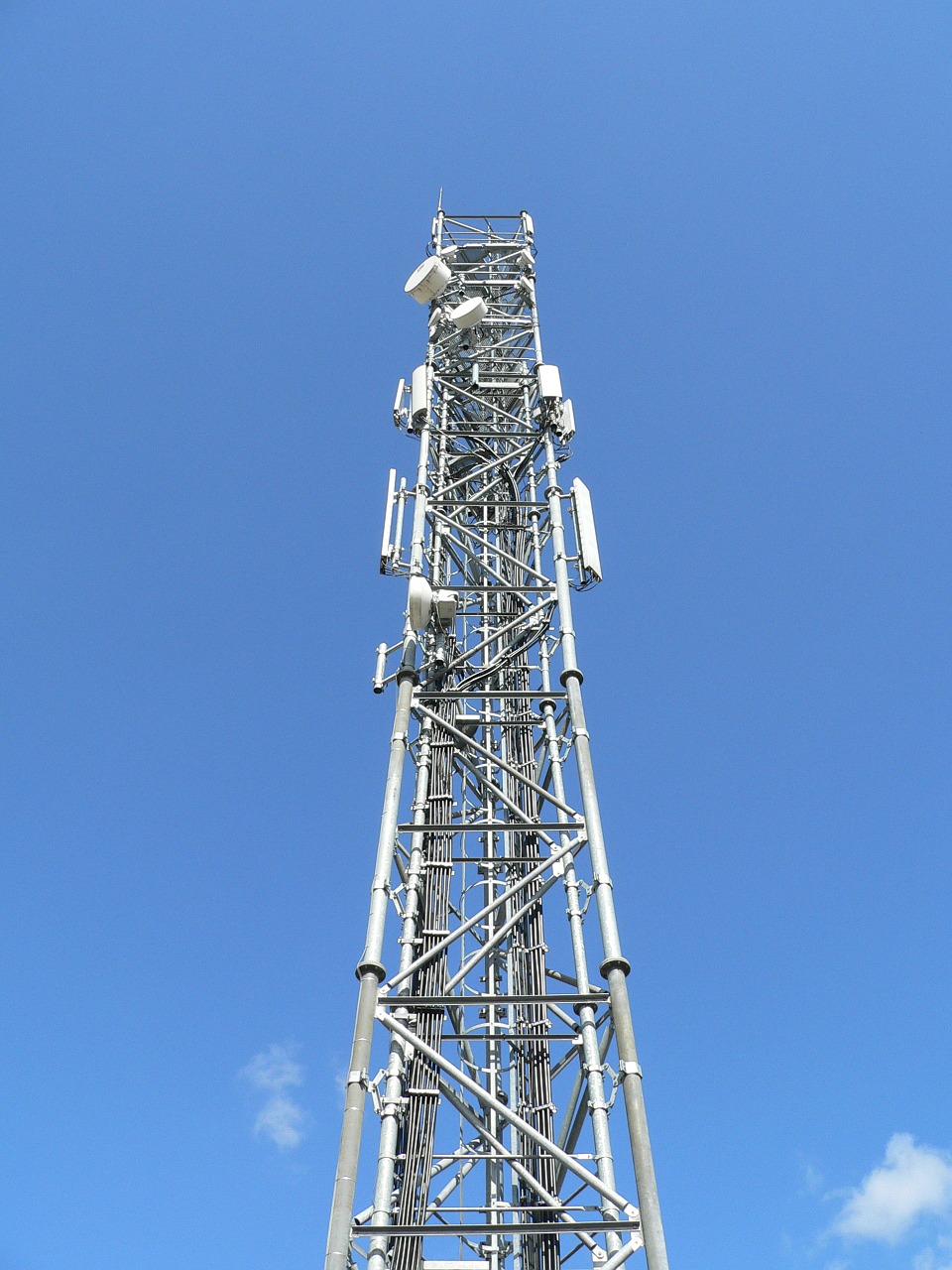The Philippine Institute for Development Studies (PIDS) urged the country’s telecommunication giants to work with the Philippine Competition Commission (PCC) to ensure their acquisition of San Miguel Corp. (SMC) telecommunication assets will benefit consumers.
In a study, PIDS senior research fellow Erlinda M. Medalla said it was not too late for PLDT and Globe to work with the PCC. This will also ensure that their acquisition of SMC assets will not violate the PCC Act.
This cooperation could entail agreeing on conditions, such as platform sharing and interconnectivity, as well as increased services and greater utilization of the newly acquired assets.
It is not too late for PLDT and Globe to work with the PCC [and National Telecommunications Commission] to ensure that there is [and will be] no violation of the Act and that the M&As [mergers and acquisitions] would, indeed, produce benefits. This can be done during the transition period, where the firms can ‘cure’ any violation if any, or may request for binding ruling from the PCC,” Medalla said.
The author said the “timing and haste” by which the PLDT and Globe acquisitions of SMC’s telecommunication assets were “arguably suspect”.
However, “a technical loophole” in the memorandum circulars issued by the PCC in lieu of a completed implementing rules and regulations (IRR) allowed the “transactions to proceed”.
Medalla explained that, in the case of mergers and acquisitions, the review process started upon the effectivity of the IRR of the Philippine Competition Act.
With the IRR still being completed, the PCC issued Memorandum Circulars (MC) 16-001 and 16-002 to “require only authentic and proper notification of covered M&As executed after the effectivity of the Act but before the effectivity of the IRR to be deemed approved”.
There is added concern that the transactions have not been fully transparent about the terms in the cosharing agreement and the conditions set by the National Telecommunications Commission. Nonetheless, the MC provided a technical loophole for the transactions to proceed,” Medalla said.
The PCC was created in February 2016 as provided for under Republic Act 10667, otherwise known as the Philippine Competition Act, passed in July 2015.
Part of its mandate is to review M&As that may impede competition to the detriment of the consumers.
In just a year, the antitrust body has received 80 notifications for M&A deals, as well as eight referrals for possible anticompetitive behavior in some sectors.
In a study, PIDS senior research fellow Erlinda M. Medalla said it was not too late for PLDT and Globe to work with the PCC. This will also ensure that their acquisition of SMC assets will not violate the PCC Act.
This cooperation could entail agreeing on conditions, such as platform sharing and interconnectivity, as well as increased services and greater utilization of the newly acquired assets.
It is not too late for PLDT and Globe to work with the PCC [and National Telecommunications Commission] to ensure that there is [and will be] no violation of the Act and that the M&As [mergers and acquisitions] would, indeed, produce benefits. This can be done during the transition period, where the firms can ‘cure’ any violation if any, or may request for binding ruling from the PCC,” Medalla said.
The author said the “timing and haste” by which the PLDT and Globe acquisitions of SMC’s telecommunication assets were “arguably suspect”.
However, “a technical loophole” in the memorandum circulars issued by the PCC in lieu of a completed implementing rules and regulations (IRR) allowed the “transactions to proceed”.
Medalla explained that, in the case of mergers and acquisitions, the review process started upon the effectivity of the IRR of the Philippine Competition Act.
With the IRR still being completed, the PCC issued Memorandum Circulars (MC) 16-001 and 16-002 to “require only authentic and proper notification of covered M&As executed after the effectivity of the Act but before the effectivity of the IRR to be deemed approved”.
There is added concern that the transactions have not been fully transparent about the terms in the cosharing agreement and the conditions set by the National Telecommunications Commission. Nonetheless, the MC provided a technical loophole for the transactions to proceed,” Medalla said.
The PCC was created in February 2016 as provided for under Republic Act 10667, otherwise known as the Philippine Competition Act, passed in July 2015.
Part of its mandate is to review M&As that may impede competition to the detriment of the consumers.
In just a year, the antitrust body has received 80 notifications for M&A deals, as well as eight referrals for possible anticompetitive behavior in some sectors.










